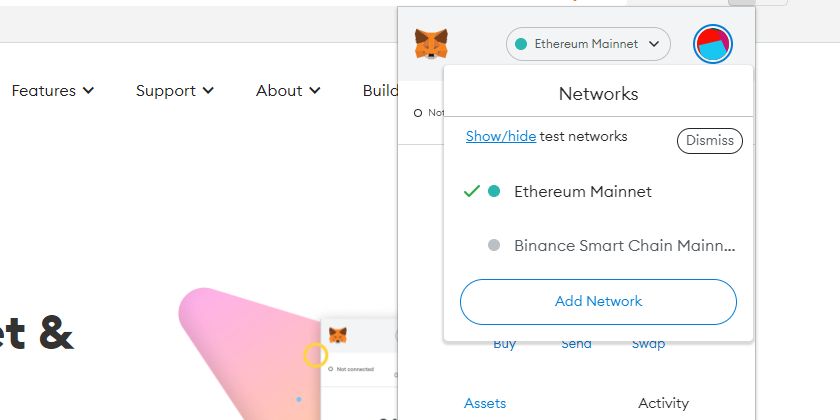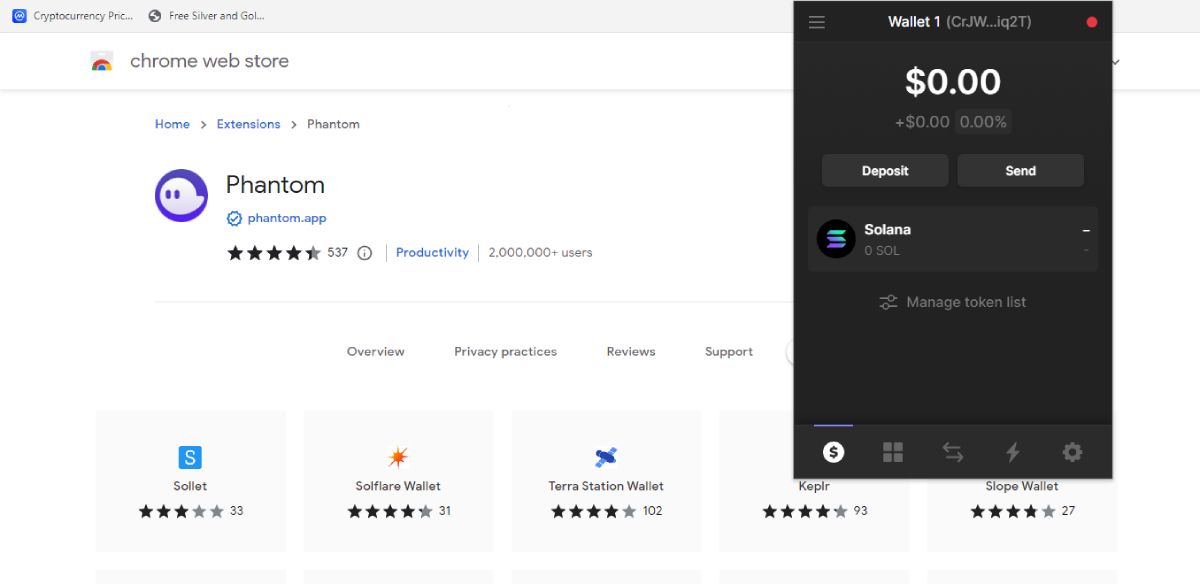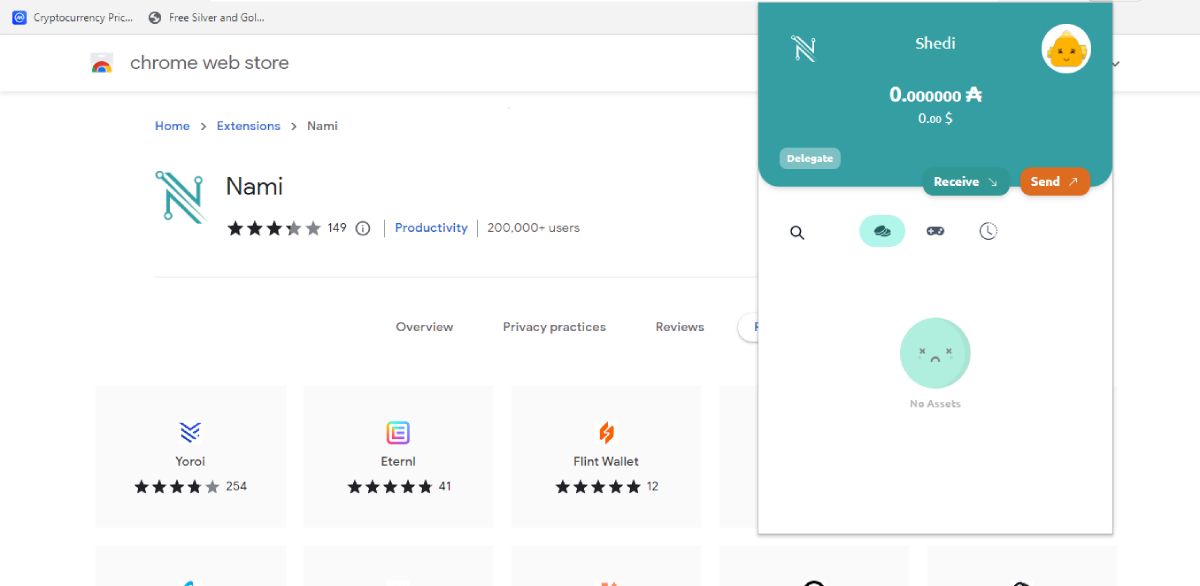There are different types of crypto wallets, including hot and cold. Among hot wallets, browser extension wallets are increasingly popular because they are easy to use without installing any software.
This article will examine three of the best browser extension wallets that you can use to manage your crypto portfolio.
What are browser extension wallets?
Crypto wallets are known as either software or hardware. Browser extension wallets are generally not considered “software wallets”, even though they are part of the browser software. They are browser extensions that you can access with a supported browser. However, they are what is known as a hot wallet, which is a crypto wallet with an active internet connection.
The software runs on the browser as a non-custodial wallet, with all information stored in it. Browser wallets are mostly built for certain blockchains and may not support tokens from other blockchains.
Browser wallets are excellent for interacting with decentralized applications (DApps), decentralized exchanges (DEX) and NFTs specific to their respective blockchains. You can connect a browser wallet to a decentralized exchange and use it to buy or sell tokens and NFTs or to use one or the other DApp.
These wallets can also be used to stake cryptocurrencies and contribute to liquidity pools, and users can earn rewards from such activities.
If you’re considering using one, here are the three best crypto wallets for the browser extension.
Metamask is arguably one of the most popular browser-based crypto wallets. With over 30 million active monthly users, the wallet is among the most widely used software in the crypto space.
Metamask primarily enables users to interact with the Ethereum blockchain. You can easily access Ethereum wallets through the browser extension and interact with DApps.
Interestingly, Metamask also has a mobile app that you can use to access the same features as with the browser extension.
It has a sync feature that allows you to sync your browser extension and mobile app to run just one wallet on your browser or mobile device.
The wallet was created mainly for ERC-20 tokens, so it supports Ethereum-based altcoins, but not Bitcoin. It also supports BEP20 cryptocurrencies built on Binance Smart Chain, giving users access to more tokens, better fees and faster transaction speed.
Binance Smart Chain and Ethereum are currently the two supported blockchains and you can switch between them depending on which one you want to use. You can also add layer 2 solutions, such as Polygon, to Metamask.
In particular, the wallet supports Trezor, Ledger, Lattice, Keystone and AirGap Vault hardware wallets, so you can use it to access tokens you store in any of the cold wallets. If you are new to Metamask, learn how to set up Metamask and use Metamask to buy tokens.
2. The Phantom
Phantom is a browser extension wallet that works with major browsers including Chrome, Firefox, Brave and Edge. Like Metamask, it is a wallet available as a browser extension and used to interact with DApps.
Unlike Metamask, it is a Solana-based wallet. However, it is used for the same purposes as Metamask, including buying, selling, sending, receiving, storing and exchanging tokens. You can also use Phantom to collect NFTs on the Solana blockchain.
The wallet can be considered a rival to Metamask, considering that Solana is an Ethereum killer. It also has a mobile app that can be synced with the browser extension, giving you full access to the wallet using any of the platforms.
Ledger, the leading hardware wallet, is supported on Phantom, giving you access to your Solana-based tokens whenever you want. The growing popularity of Phantom can be attributed to the growing popularity of Solana against Ethereum due to the huge gas fees on the latter.
Security-wise, Phantom is just like Metamask, as it uses a password to secure the wallet and a 12-word recovery passphrase to back up the wallet.
3. Nami
Nami is another top browser extension wallet. The non-custodial wallet is based on the Cardano blockchain and is used to interact with DApps and other applications on the blockchain.
It is also a multi-asset wallet that supports multiple cryptocurrencies built on Cardano.
It allows you to manage delegations to stake pools and coining, and will soon be used to interact with smart contracts after the Alonzo hard fork. It also supports Trezor and Ledger, two of the best hardware crypto wallets to secure your assets.
Although Nami is not yet as well known as Metamask or even Phantom, Cardano has plans to expand and become more competitive against top blockchains. This makes it a potentially great browser wallet since everything you can do on Cardano can be done through the wallet.
Unlike Metamask and Phantom, Nami currently has no mobile app, so it’s only accessible from the supported browsers, which include Chrome, Brave, and Edge. However, this is likely to change in the future, as Cardano aggressively develops every area of its ecosystem.
Nami has a simple user interface that anyone can use, regardless of their level of crypto or technology knowledge. You can easily set it up in minutes and use it to interact with the Cardano blockchain.
It also has the same security features as Metamask and Phantom, which include a password and recovery phrase.
One interesting thing is that it allows you to set a username for each specific wallet you create. This is a cool feature that can make your wallet more personal without risking your personal data.
Which is your favorite crypto wallet for the browser?
Although these are all browser wallets that work the same way, you will use them differently depending on the blockchain.
Metamask is the oldest and most popular, largely due to Ethereum’s reputation as the go-to network for all things DApps and smart contracts.
However, blockchains like Solana and Cardano are catching up and could become a major competition for Ethereum, so Phantom and Nami could soon become formidable competitors.





























